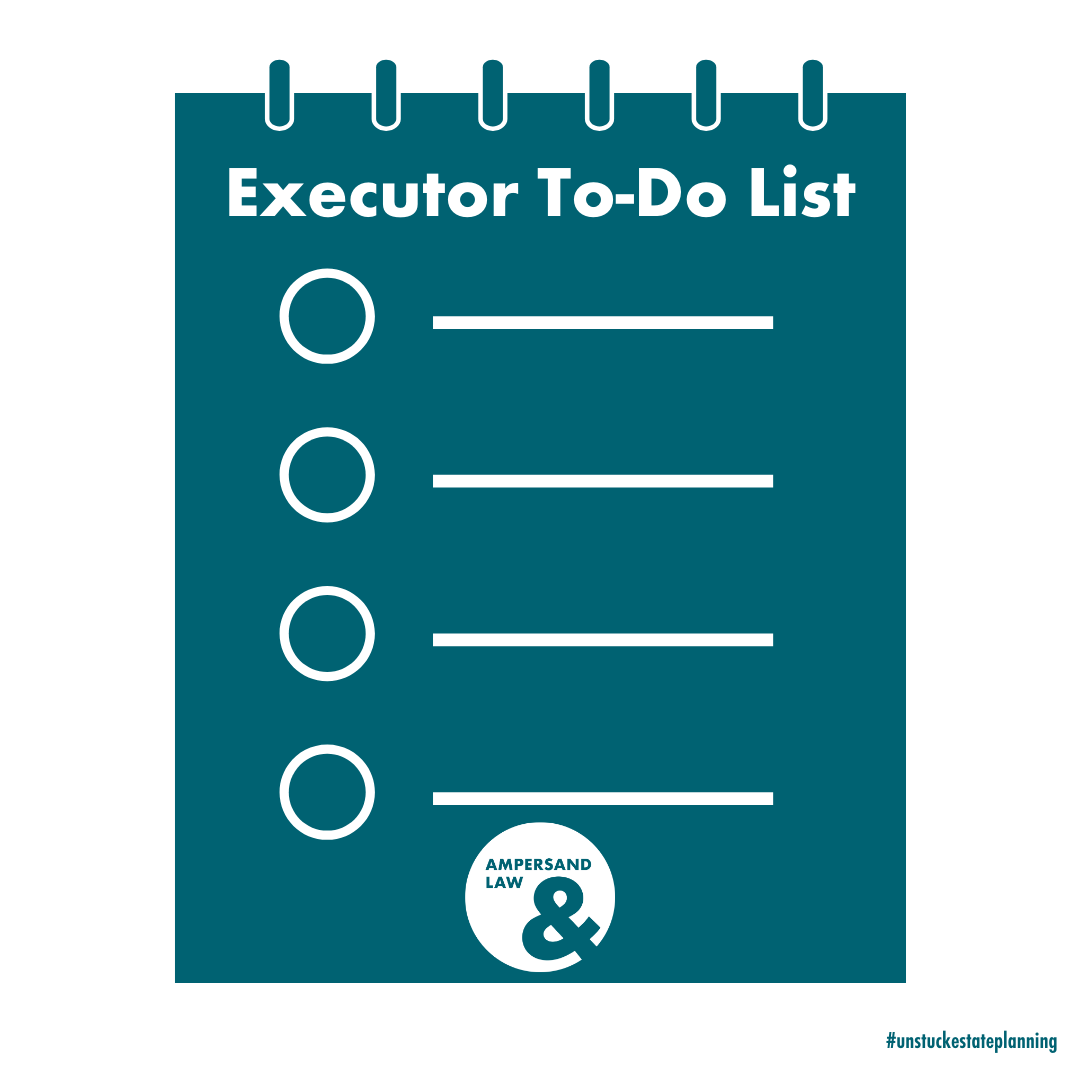About Executors...
Who is an Executor? The Executor named in your Will is the person you want to have the authority to carry out the instructions you've provided. But, following the instructions in a Will is only part of an Executor's job.
What does an Executor do, generally? Being an Executor is mostly an administrative role and often involves lots of paperwork. Beyond what's written in a Will, state laws set the duties of an Executor. And things like the assets (and debts) of the estate and the people involved make significant impacts on an Executor's workload.
How long does an Executor's job last? It's possible for an entire estate/probate process to just take a few weeks. This can happen if an estate has a small value, no significant debt, and only one beneficiary (or, in some cases, just a few beneficiaries). However, most estate/probate processes take months, and it's not uncommon for them to take the better part of a year.
What does an Executor do, specifically? Depending on the estate, here's a list of some of the things an Executor may need to do:
work with probate/estate court staff (including judges);
notify beneficiaries named in a Will;
contact known creditors and publish a notice to unknown creditors in the newspaper;
close all active accounts (financial and otherwise);
inventory the estate assets (with appraisals if needed) and file related paperwork with the court;
file (or assist with) paperwork for employee benefits, retirement accounts, and life insurance policies;
file (or assist with) paperwork related to government benefits;
file local, state, and federal tax returns for the deceased's last year of life;
file state and local estate tax returns;
use available estate funds to pay known debts;
evaluate and pay valid creditors claims (using available estate funds);
sell estate assets (as needed/if directed);
distribute assets as specified in the Will and obtain receipts from beneficiaries;
dispose of any remaining estate property not sold or distributed;
file paperwork to close the estate.
Does an Executor get paid? It depends! The maker of the Will can decide (subject to state law). Some people specify an amount/calculation for Executor compensation. Other people expressly prohibit it. Some people don't address it at all (and then the state law default applies).
In North Carolina law, Executors are allowed a "commission" for their efforts upon court approval. When a Will specifies an amount/calculation for Executor compensation - that's what the court will consider. When a Will defers to state law or says nothing about this topic - the default is currently compensation of up to 5% of the estate value (calculated in a specific way). And if a Will says the Executor will not be compensated - they won't.
Executor compensation is one of my soapbox topics (along with the power of attorney documents). Put another way - I strongly encourage it. Mainly because an Executor can always decline compensation if they don't need it or don't feel right taking it. But being an Executor isn't an easy job. It often requires people to take time away from their actual paid employment.
Imagine your chosen Executor is in that situation: losing pay from missing work, and your Will expressly denies them compensation. You've put your Executor into a very tough situation. And doesn't that defeat one of the primary purposes of estate planning in general (avoiding putting your family & loved ones into tough situations)?

